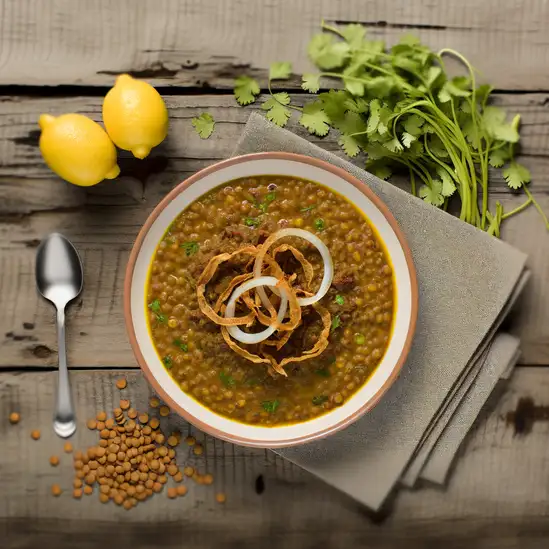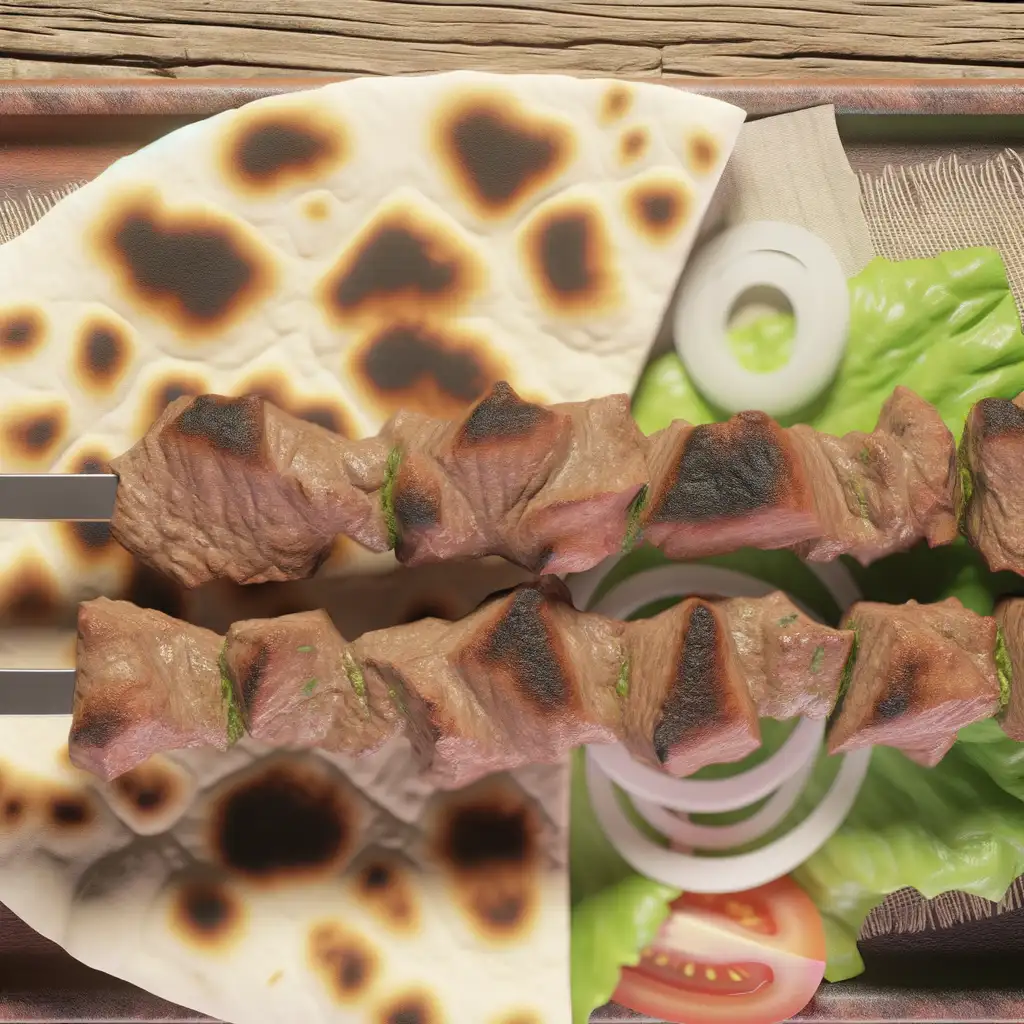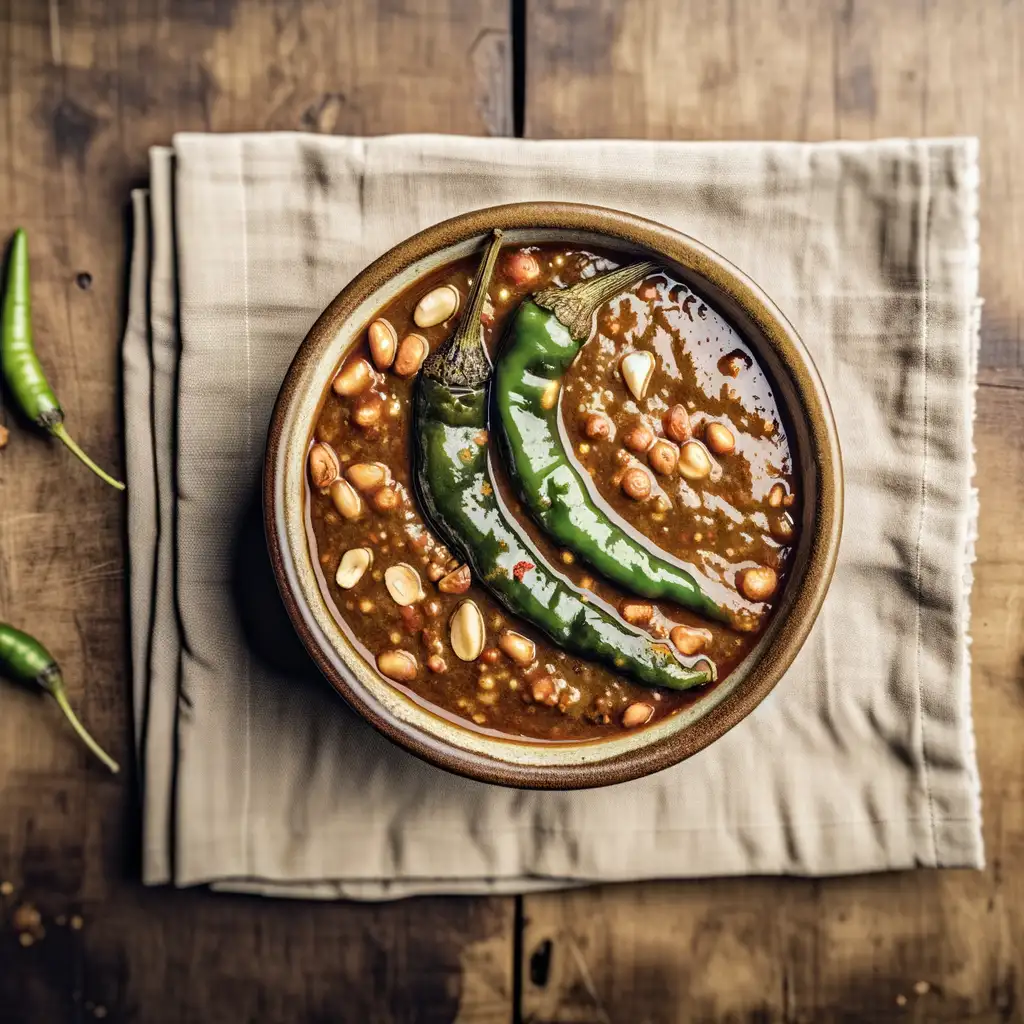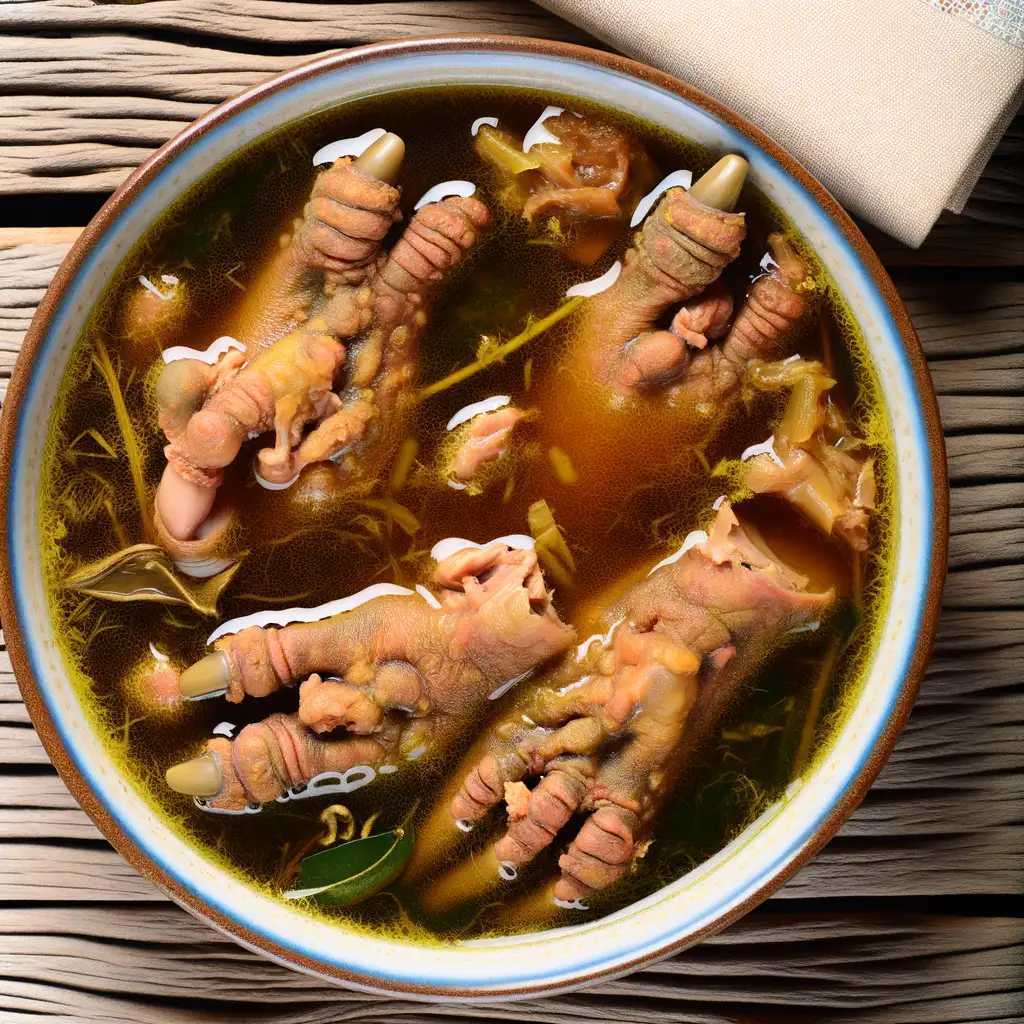


Hyderabad feels like stepping into a vibrant tapestry where history and modern life dance together effortlessly. The moment you arrive,you’re greeted by the warm hum of bustling bazaars,the scent of sizzling spices wafting through the air,and the distant call of street vendors selling everything from fragrant jasmine garlands to colorful bangles. It’s a city that wears its rich past proudly—majestic monuments like the Charminar and Golconda Fort stand tall,whispering stories of sultans and ancient trade routes,while sleek tech parks pulse with the energy of India’s Silicon Valley. Walking through the old city,you’ll hear the rhythmic clatter of chai glasses and the chatter of locals bargaining over fresh produce and handwoven fabrics. The aroma of biryani—Hyderabad’s crown jewel—drifts from every corner,inviting you to savor its perfectly spiced layers of fragrant rice and tender meat. There’s a warmth here,not just in the weather but in the people,whose hospitality feels genuine and unhurried. What makes Hyderabad truly special is its blend of cultures—where Urdu poetry meets Telugu cinema,and centuries-old traditions mingle with cutting-edge innovation. Whether you’re wandering through the colorful markets,exploring the serene Hussain Sagar lake,or indulging in street food that tingles your taste buds,the city wraps you in a comforting embrace that’s both timeless and alive. Trust me,Hyderabad isn’t just a place you visit; it’s a place you feel.
The information on this page is currently being reviewed by Tripkliq and should be used as a guide only
Eng word: Hello
Eng pronunciation: Halo
Local language: హలో
Eng word: Goodbye
Eng pronunciation: Veedkolu
Local language: వీడ్కోలు
Eng word: Thank you
Eng pronunciation: Dhanyavaadalu
Local language: ధన్యవాదాలు
Eng word: How much
Eng pronunciation: Entha
Local language: ఎంత
Eng word: Toilet
Eng pronunciation: Shauchaalayam
Local language: శౌచాలయం
Eng word: Help me
Eng pronunciation: Naaku sahaayam cheyandi
Local language: నాకు సహాయం చేయండి
Eng word: Yes
Eng pronunciation: Avunu
Local language: అవును
Eng word: No
Eng pronunciation: Kaadu
Local language: కాదు
Eng word: Excuse me
Eng pronunciation: Kshaminchandi
Local language: క్షమించండి
Hyderabad was founded in 1591 by Muhammad Quli Qutb Shah, the fifth sultan of the Qutb Shahi dynasty. The city was established on the banks of the Musi River and was intended to be a symbol of the sultan's love for his wife, Bhagmati.
The Charminar, an iconic monument and mosque, was built in 1591 by Muhammad Quli Qutb Shah to commemorate the end of a deadly plague. It stands at the heart of Hyderabad and is a prime example of Indo-Islamic architecture.
Golconda Fort, located 11 kilometers from Hyderabad, was the capital of the Qutb Shahi dynasty before the foundation of Hyderabad. The fort is renowned for its acoustics, palaces, and ingenious water supply system.
Mecca Masjid, one of the largest mosques in India, was commissioned by Muhammad Quli Qutb Shah in 1614 and completed by Mughal Emperor Aurangzeb in 1694. The mosque's bricks were made from soil brought from Mecca, the holiest site in Islam.
Hyderabad was the capital of the princely state of Hyderabad, which was the largest and most prosperous of the princely states in India. The state was ruled by the Nizams, who were known for their wealth and patronage of the arts.
Falaknuma Palace, built in 1893, was the residence of the Nizam of Hyderabad. The palace is an architectural marvel, featuring a blend of Italian and Tudor styles, and is now a luxury hotel managed by the Taj Group.
Osmania University, established in 1918, is one of the oldest modern universities in India. It was named after the last Nizam of Hyderabad, Mir Osman Ali Khan, and is known for its beautiful campus and academic excellence.
Hussain Sagar Lake, built in 1563 by Ibrahim Quli Qutb Shah, is an artificial lake that connects the twin cities of Hyderabad and Secunderabad. The lake is famous for the large monolithic statue of Buddha installed in its center.
The Salar Jung Museum, established in 1951, houses one of the largest one-man collections of antiques in the world. The museum's collection includes art, artifacts, and manuscripts from various civilizations, curated by Nawab Mir Yousuf Ali Khan, also known as Salar Jung III.
In Hyderabad, the most common Power Adaptor is Type C, Type D, Type M.







A slow-cooked stew made with wheat, barley, lentils, and meat, often enjoyed during Ramadan, known for its rich flavor and creamy texture.

Various types of skewered and grilled meats, including seekh kebabs and shami kebabs, marinated with spices and herbs, popular as street food.

A fragrant rice dish made with marinated meat (usually chicken or mutton) and basmati rice, cooked with aromatic spices and saffron.

A spicy curry made with green chilies and a blend of peanuts, sesame seeds, and spices, typically served with biryani.

A rich bread pudding made from fried bread, milk, sugar, and flavored with cardamom and dry fruits, often served as a dessert.

A flavorful soup made from trotters (paya) cooked with spices, often enjoyed as a hearty breakfast or snack.

A fragrant rice dish cooked with spices, nuts, and sometimes served with a side of curry or raita, often enjoyed as a main course.

A variation of biryani made with a mix of meat, rice, and a unique blend of spices, often featuring a sweet and tangy flavor.
Imagine stepping into a city that pulses with energy,where every street corner hums with life and stories waiting to be discovered—that’s Mumbai for you. The moment you arrive,you’re wrapped in a vibrant tapestry of sounds:the rhythmic clatter of local trains,the lively chatter of street vendors,and the distant call of temple bells blending with honking rickshaws. The air carries a mix of spices from roadside stalls,mingling with the salty breeze from the Arabian Sea,creating an intoxicating scent that’s uniquely Mumbai.
Walking through its bustling lanes,you’ll see a kaleidoscope of colors—bright saris fluttering in the wind,intricate colonial architecture standing proudly beside sleek skyscrapers,and street art that tells tales of the city’s soul. Mumbai’s character is a beautiful contradiction:it’s fast-paced yet welcoming,chaotic yet deeply rooted in tradition. The city’s heartbeat is its people—dreamers,artists,and entrepreneurs who wear their resilience and warmth like a badge of honor.
And then there’s the food—oh,the food! From the tangy,spicy street-side vada pav that feels like a warm hug,to the rich,aromatic biryanis and fresh seafood by the sea,every bite is a celebration of flavors. Mumbai invites you to lose yourself in its maze of neighborhoods,each with its own rhythm and charm,promising moments of surprise and connection. It’s not just a place to visit; it’s a city that stays with you long after you’ve left.
If you ever find yourself craving a place where the ocean breeze carries stories of adventure and the rhythm of waves sets your pace,Port Blair is where you want to be. This city feels like a gentle invitation to slow down and soak in the raw beauty of island life. The moment you step off the ferry or plane,the salty air mingled with the scent of tropical flowers wraps around you like a warm hug. Palm trees sway lazily against a backdrop of turquoise waters,and the chatter of locals blends with the distant call of seabirds,creating a soundtrack that’s both lively and soothing.
Port Blair isn’t just a gateway to the Andaman Islands; it’s a place where history whispers through the walls of the Cellular Jail,a somber yet inspiring reminder of India’s past. But beyond its historical weight,the city pulses with a laid-back charm—colorful markets burst with fresh seafood,exotic fruits,and spices that tease your senses. Grab a plate of freshly caught fish grilled with local herbs,and you’ll taste the ocean’s essence in every bite.
What makes Port Blair truly special is its blend of cultures and the warmth of its people. You’ll find a mix of indigenous traditions and influences from across India,all coexisting in a relaxed,welcoming vibe. Whether you’re wandering along Corbyn’s Cove Beach at sunset or chatting with fishermen mending their nets,there’s a genuine friendliness here that makes you feel like you belong. It’s a place that invites you to explore,reflect,and simply be.
A coastal city in Kerala,Kochi is famous for its backwaters,Fort Kochi,and nearby islands like Vypin and Willingdon,offering a blend of history,culture,and natural beauty.
ExploreImagine stepping into a place where the sun kisses your skin,the salty breeze carries the laughter of beachside chatter,and every corner hums with a laid-back yet vibrant energy—that’s North Goa for you. It’s a lively patchwork of golden sands,swaying palms,and colorful shacks where the aroma of sizzling seafood mingles with the faint scent of frangipani flowers. Whether you’re wandering through the bustling markets of Anjuna or watching the sun dip behind the waves at Calangute,there’s a rhythm here that feels both timeless and alive.
What really makes North Goa special is its blend of cultures and carefree spirit. You’ll find Portuguese-influenced architecture standing proudly alongside lively street art,while the music—from mellow acoustic sets to pulsing electronic beats—drifts through the air,inviting you to join in. The locals,warm and welcoming,add a genuine charm that makes you feel like you’re part of a big,sun-soaked family.
And the flavors! Freshly caught fish grilled with spices that tease your taste buds,tangy Goan curries,and sweet,creamy feni that’s perfect for toasting to new adventures. As night falls,the beach transforms into a playground of bonfires and music,where stories flow as freely as the ocean breeze. North Goa isn’t just a destination; it’s a feeling—a place that stays with you long after you’ve left.
If you ever find yourself in Male,Maldives,get ready to be swept up by a vibrant little city that pulses with island life and unexpected energy. It’s not your typical tropical getaway where everything feels distant and quiet—instead,Male buzzes with a lively rhythm,where the scent of salty ocean air mingles with the aroma of fresh spices from bustling street markets. Walking through its narrow streets,you’ll hear the chatter of locals,the hum of motorbikes,and the occasional call to prayer echoing from the mosques,all blending into a soundtrack that feels both ancient and alive.
What’s really captivating about Male is how it balances tradition and modernity. You’ll see colorful buildings painted in bright pastels,fishing boats bobbing in the harbor,and sleek cafes serving up rich Maldivian coffee alongside international flavors. The city’s compact size means you can explore on foot,discovering little corners where vendors sell fragrant tropical fruits or where fishermen unload their fresh catch of the day. The warmth of the people here is palpable—they’re proud of their culture and eager to share stories if you stop to chat.
And don’t miss the chance to taste the local cuisine—imagine biting into a spicy mas huni breakfast,where shredded tuna,coconut,and chili dance on your tongue,or savoring grilled seafood fresh from the Indian Ocean. Male isn’t just a gateway to the Maldives’ famous resorts; it’s a lively,sensory-rich place that invites you to slow down,soak in the island spirit,and feel connected to a culture that’s as deep as the surrounding blue waters.
If you step into Colombo District,you immediately feel the pulse of a city that’s both vibrant and laid-back,where old-world charm meets modern hustle. Imagine walking along bustling streets lined with colonial-era buildings,their faded facades telling stories of a rich past,while sleek glass towers rise nearby,reflecting the tropical sun. The air carries a mix of scents—spices from street food stalls,salty sea breeze from the nearby coast,and the faint aroma of jasmine from roadside vendors. It’s a place where the sounds of honking tuk-tuks blend with the call to prayer and the laughter of children playing in small parks.
Colombo’s character is a beautiful mosaic of cultures. You’ll find Buddhist temples nestled beside mosques and churches,and markets where Tamil,Sinhalese,and Muslim communities come together in a colorful dance of languages and traditions. The city’s food scene is a feast for the senses—imagine biting into a crispy hopper drizzled with coconut sambol or sipping on a strong,sweet Ceylon tea while watching the sunset over Galle Face Green,where locals fly kites and families gather to unwind.
What makes Colombo truly special is its warmth. Despite the city’s fast pace,there’s a genuine friendliness in the smiles of shopkeepers and the inviting chatter in cafés. It’s a place where you can lose yourself in vibrant street art one moment and find quiet reflection in a serene temple garden the next. Colombo isn’t just a destination; it’s an experience that stays with you long after you leave.
Drivers may refuse to use the meter and charge exorbitant fares, especially for tourists unfamiliar with local rates.
Tourists may be sold fake tickets for entry to attractions or events, leaving them denied entry upon arrival.
Scammers may pose as representatives of charities or orphanages, asking for donations that never reach the intended cause.
Tourists may be given counterfeit currency or charged hidden fees when exchanging money at unauthorized locations.
Unlicensed guides may approach tourists at popular attractions, offering services but providing little value or misleading information.
Tourists are lured into buying fake or overpriced gemstones under the pretense of a 'great deal' or investment opportunity.
Shops near tourist spots may sell souvenirs at inflated prices, targeting unsuspecting visitors.
Scammers may create a distraction, such as spilling something on a tourist, while an accomplice steals their belongings.
Vendors may sell low-quality or counterfeit goods at high prices, claiming them to be authentic or handmade.
Drivers may take longer routes or claim that the destination is closed, redirecting tourists to shops or hotels where they earn commissions.
The use, possession, and trafficking of drugs are strictly illegal in Hyderabad under the Narcotic Drugs and Psychotropic Substances (NDPS) Act. Penalties for drug-related offenses are severe and can include long-term imprisonment and hefty fines. Tourists should avoid any involvement with illegal drugs.
In Hyderabad, smoking is prohibited in public places such as hospitals, educational institutions, public transport, and government offices. Designated smoking areas are available in some places like restaurants and hotels. Violating these rules can result in fines.
Vaping is subject to similar regulations as smoking in Hyderabad. The sale of e-cigarettes and vaping products is banned in India, including Hyderabad. Using vaping devices in public places is also prohibited and can lead to penalties.
What are other people saying about Hyderabad?
Recent Social posts about Hyderabad
There is nothing to show you for now.